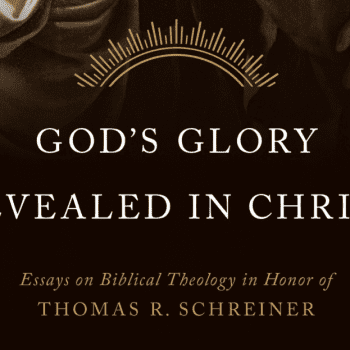The Pastor as Public Theologian has hit some fairly good feedback from many Christian circles, and for good reason. Not only is the structure of this book laid out cleanly, but it is easy to interact with the writing as you are reading it. The style of the book is largely pastoral, rather than exegetical in nature, but for obvious reasons (hence, the title). While I don’t feel as if this book has set an earth-shattering precedent, it is indeed a timely book for the evangelical church, who is in desperate need of filling the pulpit with men who are not only equipped to do the service of a pastor – but focus foremost upon the proclamation and exposition of the Word from the pulpit.
One thing I greatly appreciated about this book was that is lacked the tendency to run away with polemics and chastisement of the church. We know the American church and the pastorate are weak currently (as a collective whole) – what is needed is the solution: a return to expository preaching and for the pastorate to be seen as one of a rich historical foundation. This foundation is precisely what Vanhoozer and Strachan argue for, using the historical-theological narrative to build their case.
Beyond this, the layout of the book is easy to follow. Starting with a brief biblical theology of the pastorate, they deal within the nature of prophet, priest, and king, drawing from OT texts and offices to inform in part what the pastorate looks like – under the auspices of the true Prophet, Priest, and King. In the next section of the book, they dive deeply into the historical roots of the pastorate, drawing from the Early Church Fathers, Medieval Period, Reformation, the Puritans, and a few modern examples of pastors who stood against the tides of theological liberalism (Ockenga) and tumultuous times (M.L.J.).
In the second section of the book, Vanhoozer and Strachan turn the focus toward a systematic and practical theology of the pastoral office. In this, they further build the case for both the nature of theological depth and practical orthopraxy. Thus, not only is the pastor-theologian fulfilling the deep need for an in depth knowledge of the God who saves, but also an in depth treatment on how that theology informs their lives in the wake of living under God’s commands, trials and burdens this life gives us, having an abiding faith and trust through knowing Christ crucified and the power of His resurrection. Yet also, here they offer a brief treatment regarding the imperative (command) in light of the indicative (fact) mood within scripture. More clearly, they seek to draw the line in why the pastor obeys the scriptures, and leads others to do so as well.
The final chapter of the book focuses specifically on how the Great Commission informs the role of the pastor-theologian. Thus, it is not the conventional growth-by-numbers treatment that is so common in the broader Evangelical church, but the “building of God’s house” through disciple-making. In breaking down this commission, the tasks are fairly straight forward:
- Evangelism: Proclaiming What Is in Christ
- Catechism: Teaching What Is in Christ
- Liturgist: Celebrating What Is in Christ
- Apologist: Demonstrating What Is in Christ
In between each of these chapters are brief sections called Pastoral Perspectives, and they offer exactly what it sounds like. Some of these are incredibly helpful, others are less so. That’s always the nature of the beast with multiple contributions within a larger work, but these are at most 2-3 pages each.
I set off to read this book because I was excited to read it. I have long lamented over the state of the American church, having recognized the systemic issue of unqualified men in the pulpits. Often, the pulpit is the last place the broader evangelical church sees as a bastion of theologically rich, biblically sound doctrine. Rather, the pastor is oft seen as the man who dons the drape of public service, performs the weddings, funerals, and dedications. Those who regularly study the scriptures will note the disparity between how the majority populous views pastoral ministry and what it is actually intended to be, per scriptural qualifications outlined in the Pastoral Epistles.
Though I would heartily give a recommendation for this book, there were a few weak spots within the content, which I

disagree with equally as heartily:
“God does not directly will suffering” (pg. 154).
There are a host of responses to this, but suffice it to say, I would think by now we should have developed a more rich theology of suffering. 1 Peter directly contradicts this quote.
“The Pastor-theologian works largely in the indicative mood, proclaiming the gospel, and whenever possible, using words to do so: Jesus’ own words about Jesus” (152).
I would like to give deference where it is due, but at the same time, this is the same re-hashed (falsely) attributed quoted of St. Francis de Assisi. The gospel must be proclaimed using words, something Vanhoozer and Strachan undoubtedly understand, as they expound on this in numerous point in the book and even slightly here. Yet that little phrase, “whenever possible, using words to do so” seems to reinforce a problematic inference of one’s actions giving credence to the testimony of the scriptures. While it is true that “God’s name is blasphemed among the Gentile because of you…” there are better ways to phrase what I believe the author is seeking to say.
The only other issue I had within this text, and by far, this left me unsettled in the midst of reading the book, was one of the pastoral perspectives. In the midst of reflecting upon the need for the pastor-theologian to have a breadth of knowledge in general fields, this pastor slips in his presupposition of theistic evolution (or OEC; it wasn’t entirely clear which, yet nonetheless it was clear he held to one of the two). Interestingly, he seemed to highlight the need for gentle disagreement on these matters – yet neglected to mention the untenable hermeneutical principle this methodology embraces, and the exegetical problems this creates later on. I suspect many reading this review will disagree with me on this, but perhaps he has moved too broadly in his perspective, and it seemed like an intentional act of hegemony. Throw it out there enough times and in enough popular works, and the next generation of Christians is much less likely to challenge the exegetical grounds on which it stands.
Disclosure: I received this book free from Baker Academic through the media reviewer program. The opinions I have expressed are my own, and I was not required to write a positive review. I am disclosing this in accordance with the Federal Trade Commission’s 16 CFR, Part 255.













